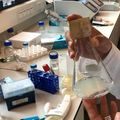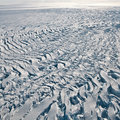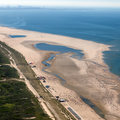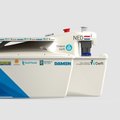Latest News
02 July 2018
Cees Dekker surprised with Best Professor Award 2018

On Monday 2 July, Cees Dekker, Professor of Molecular Biophysics at the Faculty of Applied Sciences (AS), was surprised...
27 June 2018
QuTech’s Menno Veldhorst named to MIT Technology Review’s 2018 Innovators Under 35 List
Menno Veldhorst has been named to MIT Technology Review’s prestigious annual list of Innovators Under 35. Menno Veldhorst has invented a faster path to real-world quantum circuits by making it possible for them to be printed on silicon—the way computer chips have been printed for decades. Prior to Veldhorst’s innovation, it was considered impossible to make usable, semiconductor-based quantum circuits on silicon that would be stable enough to perform useful calculations.
25 June 2018
Bacteria as living factories for the production of powerful antibiotics

By definition, antibiotics kill bacteria. Nevertheless, TU Delft researchers have succeeded in engineering bacteria to produce promising amounts of a simple carbapenem antibiotic. Carbapenem antibiotics are effective against many bacteria and are usually only used when other antibiotics fail. They are currently only produced synthetically – an expensive process that also leads to chemical waste. This research suggests that by using bacteria as ‘living factories’, carbapenems might also be produced biologically.
21 June 2018
Bedrock below West Antarctica rising surprisingly fast

Researchers have found that the bedrock below the West Antarctic Ice Sheet is rising much more rapidly than expected, revealing a very different Earth structure than previously believed. This discovery has important implications in understanding climate changes in Antarctica. The team of researchers, from ten universities including TU Delft, report on their findings in Science on June 22th.
14 June 2018
Antarctica ramps up sea level rise

Ice losses from Antarctica have increased global sea levels by 7.6 mm since 1992, with two fifths of this rise (3 mm) coming in the last five years alone.The findings are from a major climate assessment known as the Ice Sheet Mass Balance Inter-comparison Exercise (IMBIE), to which TU Delft also contributed, and are published today in Nature.
13 June 2018
Delft scientists make first ‘on demand’ entanglement link

Researchers at QuTech in Delft have succeeded in generating quantum entanglement between two quantum chips faster than the entanglement is lost. Entanglement - once referred to by Einstein as "spooky action" - forms the link that will provide a future quantum internet its power and fundamental security.
12 June 2018
In-depth analysis of safety for swimmers around the Sand Engine

Pumping huge volumes of sand onto the coastline has effects on currents, waves and swim safety. Max Radermacher has compiled the first analysis of this problem to allow targeted measures (such as extra coastguards) to be taken where necessary. Radermacher will be awarded a PhD at TU Delft for his work on this subject on Friday 15 June.
12 June 2018
TU Delft students head to Florida with autonomous vessel

From 18 to 24 June 2018, the ‘Trident Delft’ team will be battling against student teams from all around the world in the International RoboBoat Competition in Daytona, Florida.
07 June 2018
TU Delft helps develop digital ID for use on your phone

In addition to your passport and driving licence, a phone application that enables you to prove your identity quickly and securely and also offers even more privacy options could soon be possible. As part of the Dutch Blockchain Coalition, Delft University of Technology (TU Delft, The Netherlands) has joined forces with the Netherlands Identity Data Agency (RvIG), a division of the Ministry of Foreign Affairs and Kingdom Relations (BZK), IDEMIA (the current manufacturer of Dutch passports) and law firm CMS, in developing an initial prototype for a digital stamp that could fulfil this purpose in the future. This digital identity is based on TU Delft’s innovative blockchain technology, known as Trustchain. The prototype was demonstrated at a BZK event held on 7 June. After the summer, a consumer trial of this technology will be launched in two Dutch municipalities.
07 June 2018
4TU Resilience Engineering Centre officially launched

Large power failures or heavy storms demonstrate how vulnerable our infrastructure is. The four technical universities in the Netherlands (Delft University of Technology, Eindhoven University of Technology, University of Twente, and Wageningen University and Research) are joining forces in the field of Resilience Engineering. On 7 June, the plans for the centre have been explained during an international launch event in Rotterdam.
